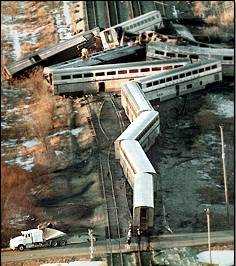I am the Queen of Tunnel Vision.
Case #1:
I want to find a branch of my bank near where I’m running errands, so I pull into the parking lot of a small shopping mall and consult my smartphone. It gives me an address that seems very close.
I pull out onto the street, make a u-turn to go in the direction I think the bank is, and as I pass by the shopping area where I was parked, I see the bank in the same parking lot.
It was directly behind where I had been parked, but because I was focused on finding the nearest bank, I didn’t look where I already was.
Case #2:
I’m at the gas station and I want to use my fuel rewards/grocery savings card to see if I can get a discount on gas. I shoot my card in and out of the slot quickly, only to see the display tell me that my card isn’t registering.
I know the magnetized stripe on this card has not worked in the grocery store slots, either, and I always have to ask the cashier to scan it for me.
Nonetheless, I continue to pop it in and out of the slot at the gas station, hoping the reader will be different than the ones in the grocery store.
No luck.
I insert the nozzle and start pumping gas at the regular price. I look around idly and my eyes fall again on the gas pump.
This time I see it. About twelve inches to the left of the card-reader slot is a scanner with a sign that has a large arrow pointing to the words, “Scan your fuel rewards card here!”
Sigh.
I was so focused on the card-reader slot and only the card-reader slot, that I was not able to see anything else on that pump.
I rest my case for being the undisputed Queen of Tunnel Vision.
Tunnels make you miss the light
Although these incidents are harmless and give me some amusement at my own expense, they also serve as a good reminder for me to be more aware of my tunnel vision syndrome. If I do it while looking for a bank or pumping gas, it’s quite possible I’ll do the same thing when a much wider perspective is needed.
When a problem arises or one of life’s storms blows in out of nowhere, having an extremely narrow view tends to keep us locked in on one component of it.
For example, when my late partner was diagnosed with cancer, my first reaction was to focus intensely on the cancer itself. What was it? How could we cure it? What were the best things for Ruth to eat? What was the most effective treatment?
These were all good questions to ask, but if I had remained fixated on only the disease itself, I would have missed something very important: the journey that surrounded the disease.
It was Ruth who first gave me the nudge that widened my vision. One day at a bookstore, she held up a book by Lawrence LeShan called Cancer as a Turning Point and said, “I think this is the answer. We should take a spiritual approach to my cancer. We don’t need all of these other medical books.”
That simple shift in focus brought many wonderful experiences to us. With our eyes off the cancer and looking about us, we noticed how many people truly loved us.
We saw the miracles that occurred each day in the ordinary: the flight of birds in the sky, the simple pleasure of friendship, the joy of laughter between us.
There were times when tunnel vision returned. When Ruth became very sick from her treatment, it was hard to focus on anything other than how to get her better. But even then, we learned to allow a simple, loving email from a friend to gently jar us loose from our fixed view and remind us that when life is at its hardest, there is beauty and love on the fringes.
Widening your view
If you’re a member of my Royal Court of Tunnel Vision, here are some ideas on how to broaden your view:
1. Notice when you are in the tunnel.
This takes some practice, but the next time you find yourself stuck on a problem – whether it’s where to put your fuel rewards card or figuring out how you’re going to pay your mortgage next month – stop for a moment. Ask yourself, “Am I entertaining all solutions or am I stuck on just one? Do I need to step back and look around me? How else can I think about this?”
2. Practice looking at things from another vantage point.
I love to read self-help books and I was completely caught off guard a couple of years ago when I decided to read Roger Van Oech’s A Whack on the Side of the Head: How You Can Be More Creative.
I don’t know what possessed me to read it since it wasn’t technically “self-help,” but I’m forever glad for that possession because it has turned out to be an invaluable asset. Through games, puzzles, and stories, it teaches you to look at life from a different angle.
I had innumerable “Oh, I get it!” experiences that not only made me see how very narrowly focused I was, but also gave me tools and ideas about how to widen my approach to everything from word puzzles to life problems.
If you can’t read the book, practice opening your viewpoint with these activities:
– When you’re in your car at a stoplight, look around you rather than at your smartphone or radio. See what is next to you on either side and then look all the way behind you.
– Try a few crossword puzzles. Crossword clues are intentionally designed to fool you by using words that usually mean one thing but can mean another. For example, the answer to the clue, “Render powerless?” is unplug. The answer to the clue, “Pain in the rear” is backseat driver. Get it?
3. Ask others for help.
When we are in the tunnel, it’s easy to think that it makes up our entire world. All we see and know is the dark, curved walls around us.
Maybe we need a little light to help us see that we’re in a tunnel, not in the real world. A friend can do that for us. Ask a friend to help you brainstorm ideas and solutions for the problem you’re facing. The old saying, “Two heads are better than one” is quite true in this case.
4. Look where you already are.
Sometimes we have what we need around us and we can’t see it. Just like when I was sitting in my car but never saw the bank right behind me because I was too focused on my smartphone.
Take a deep breath and look around you. Is there someone who can help you navigate this storm in life? Have you made it through darkness before and can use those same skills and attitude now? Is there still faith within you that there is a light at the end of this tunnel?
5. See if there is something on the fringe you are missing.
Just as Ruth and I found beauty and love on the fringes of her cancer, see what you can find around your problem. The only thing you’ll find in a tunnel is darkness.
Look for the light, my friend, look for the light.
How about you? Are you a member of my Royal Court of Tunnel Vision? What helps you to expand your view?
Let me know in the comments below!


